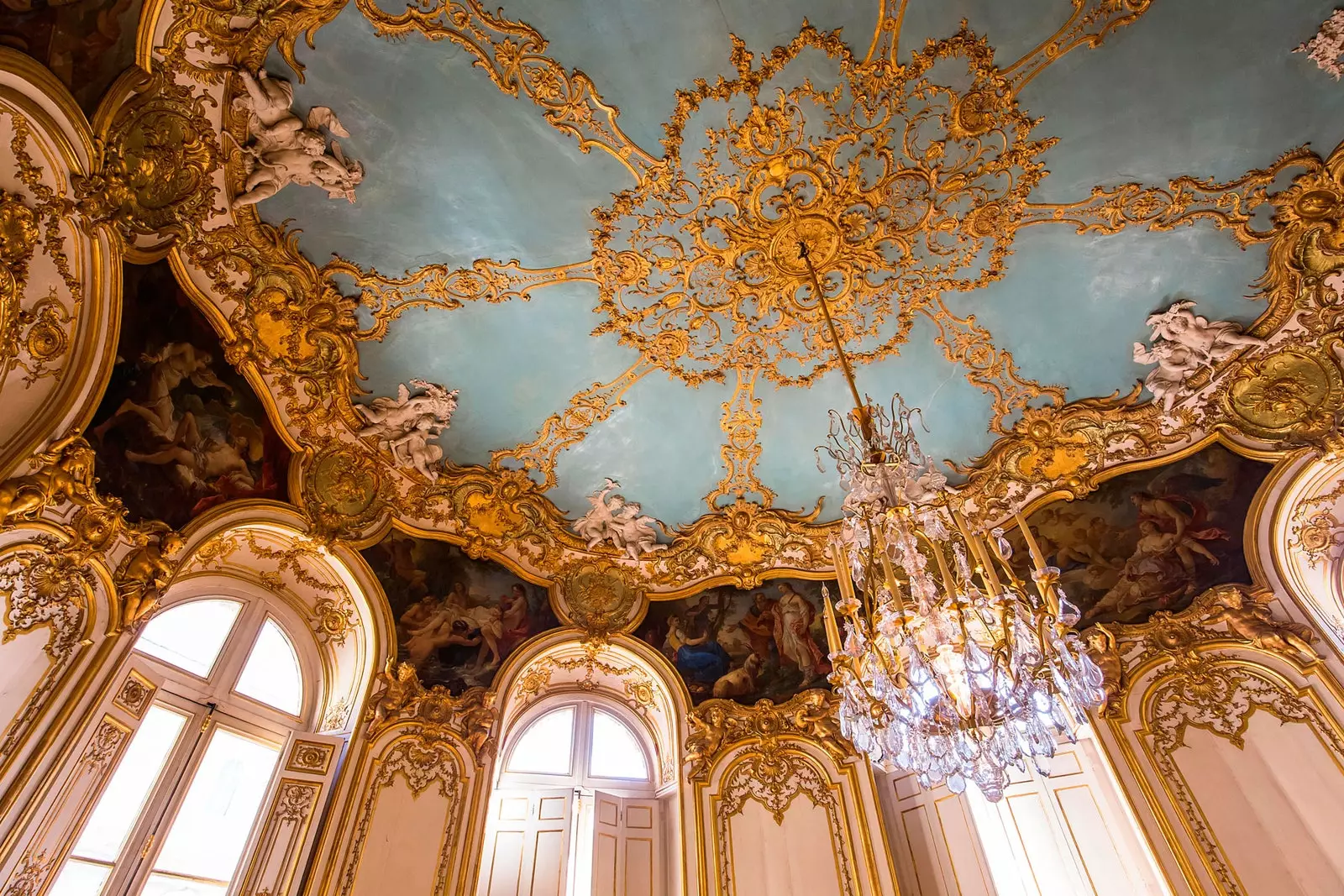
Hotel de Soubise
These elegant Parisian mansions intended for single family housing, emerged with the development of the city, mostly in the seventeenth and eighteenth centuries, as a reflection of the prestige of their owners.
Some 400 are preserved in Paris, most of them located in le Marais and protected under the title of historical monuments. Currently inhabited by individuals, they are museums, embassies or ministries. We invite you to discover six jewels of Parisian heritage, open to the public.
HÔTEL D'ESPEYRAN _(7 Rond-Point des Champs-Elysées, 75008) _
Inspired by the Louis XV style and designed by the architect Henri Parent, this building was built in 1888 for the widow of Count Frédéric Sabatier d'Espeyran, who after the death of her husband, left Montpellier to settle in Paris with her son.
As a curiosity at the end of the 19th century, the well-known artist Sophie Croizette stayed , rival of Sarah Bernhardt and her husband, the banker Jacques Stern.
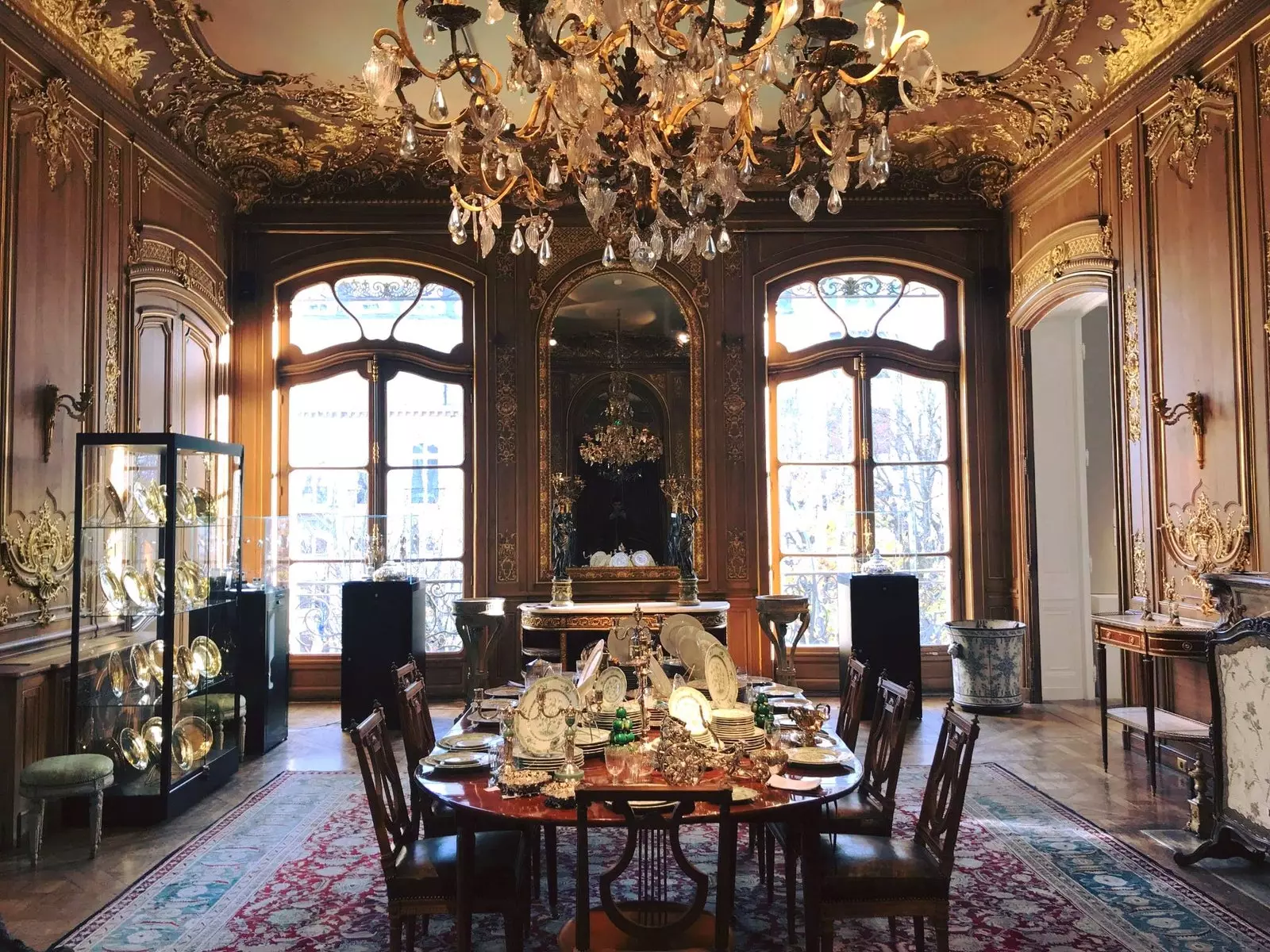
L'Hôtel d'Espeyran houses the Artcurial auction house
This majestic building, which is accessed through large gates of exuberant wrought iron, houses the prestigious Artcurial auction house. You can freely go both to their pre-sales exhibitions and to bid on your prized items.
HÔTEL DE LA ROCHEFOUCAULT-DOUDEAUVILLE _(51 rue de Varenne, 75007) _
Also called Hôtel de Boisgelin or de Janvry , dates from 1732, but today it is the result of the transformations carried out by its different tenants, such as the construction of the majestic Louis XIV-style staircase inspired by the queen's at Versailles or the Les Gobelins tapestries.
Highlights include the World Map room, its three main rooms, the Chinese room, the dance room and his library with country landscapes by Cignaroli.
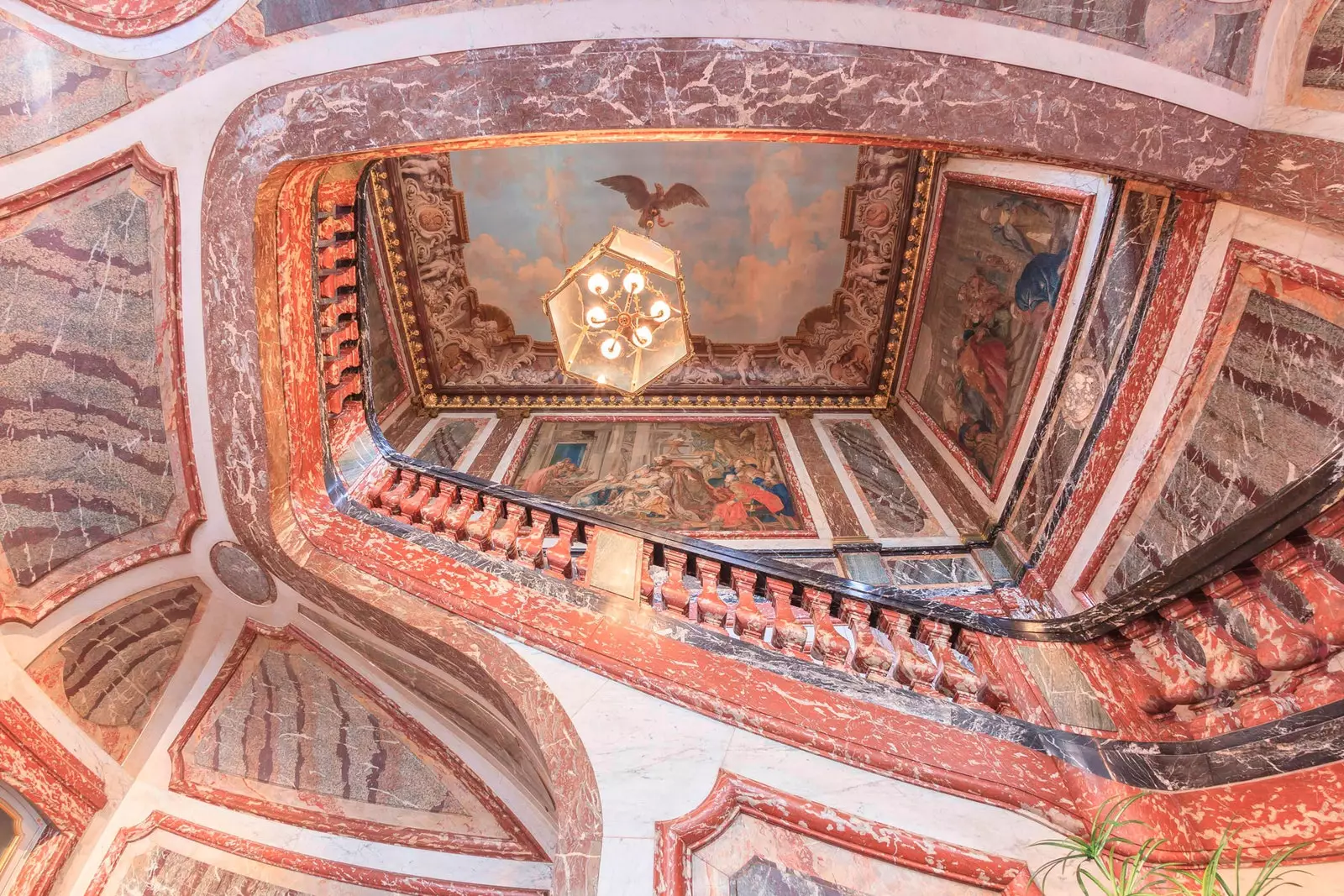
L'Hôtel de Boisgelin, seat of the Italian Embassy in Paris
Its Sicilian theatre, conceived by the 18th-century architect and decorator Adolfo Loewi, in shades of green, yellow and gold, it stands out for its walls painted with mythological characters from the Commedia dell'Arte and exotic figures from the 17th century.
Currently the seat of the ** Italian Embassy ** in Paris, it invites you to attend its interesting conferences.
HOTEL DE LA MARQUISE DE PAÏVA _(25 avenue des Champs Elysées, 75008) _
Built in the mid-19th century by the architect Pierre Manguin for Thérèse Lachman, Marchioness of Païva, it is one of the most beautiful mansions in Paris and the only one of the time preserved on the avenue des Champs-Élysées.
Since 1903 it has been the refuge of ** The Traveller's Club , a select private and ultra-confidential English circle,** which, making the spirit of the eccentric Marquise, who frequented high society, last, is made up of successful businessmen sponsored by others who are equally victorious. also welcomes a branché restaurant reserved for members only.
Classified as a monument historique, it boasts its Second Empire style of rich ornamentation: sculptures, boiseries, fireplaces, frescoes by the painter Paul Baudry and an impressive yellow onyx staircase, where new members are rumored to undergo an "initiation rite".
You can discover the emblematic building thanks to A guided tour by a lecturer from the association ** Paris Capitale Historique **. And if you are very well connected, you will proudly enter as a guest star of one of its adherents.
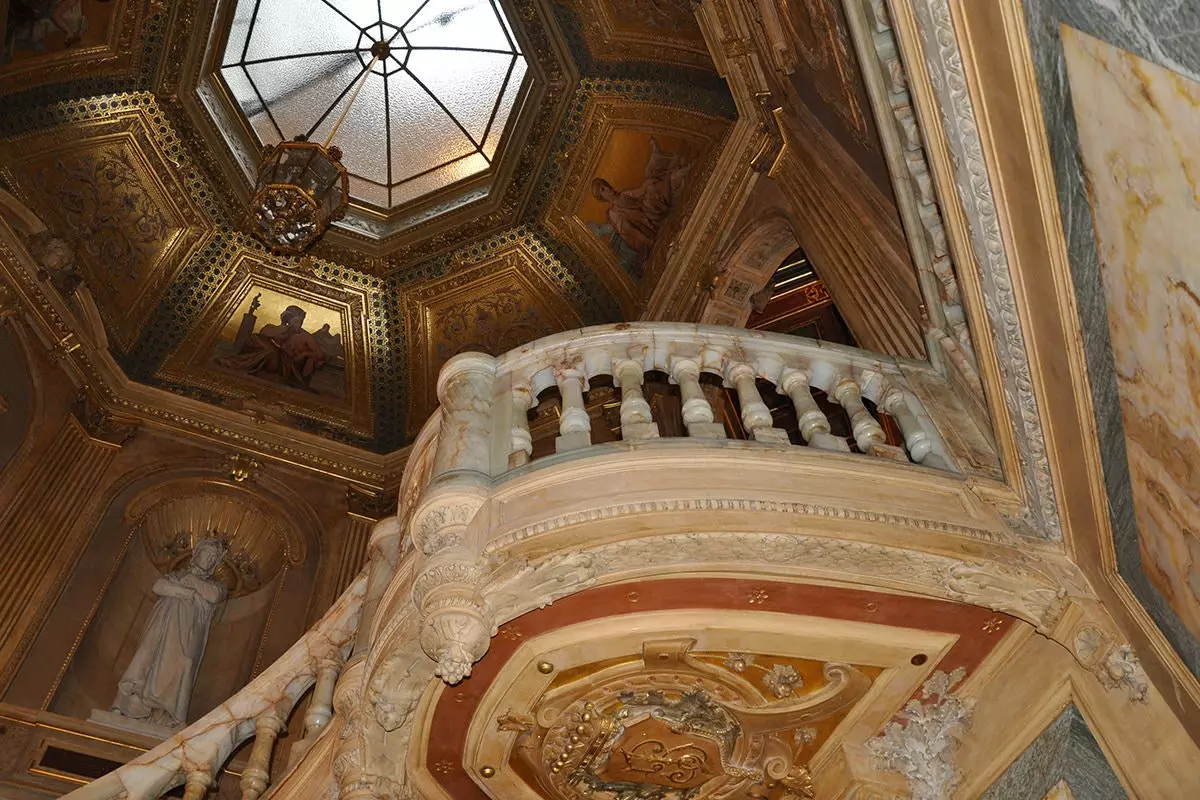
A private and ultra-confidential club that you can visit!
HÔTEL DE SULLY _(62 rue Saint-Antoine, 75004) _
this mansion, one of the most beautiful in the Marais , was erected in a Louis XIII style from 1625 near the Place des Vosges, former Place Royale.
Said urban planning was launched by Enrique IV and supervised by the Minister of Finance and Construction Superintendent Maximilien de Béthune, Duke of Sully. He acquires the mansion and decorates it, belonging to his family until the middle of the 18th century.
Subsequently, it undergoes transformations mitigated by its appointment as a monument historique, which gives rise to a facade made of ashlar masonry, which breaks with the use of brick walls at the time and with skylights for lighting, in addition to a greenhouse and broderies garden.
Today hosts the Center des national monuments , which preserves and manages a hundred French national heritage monuments.
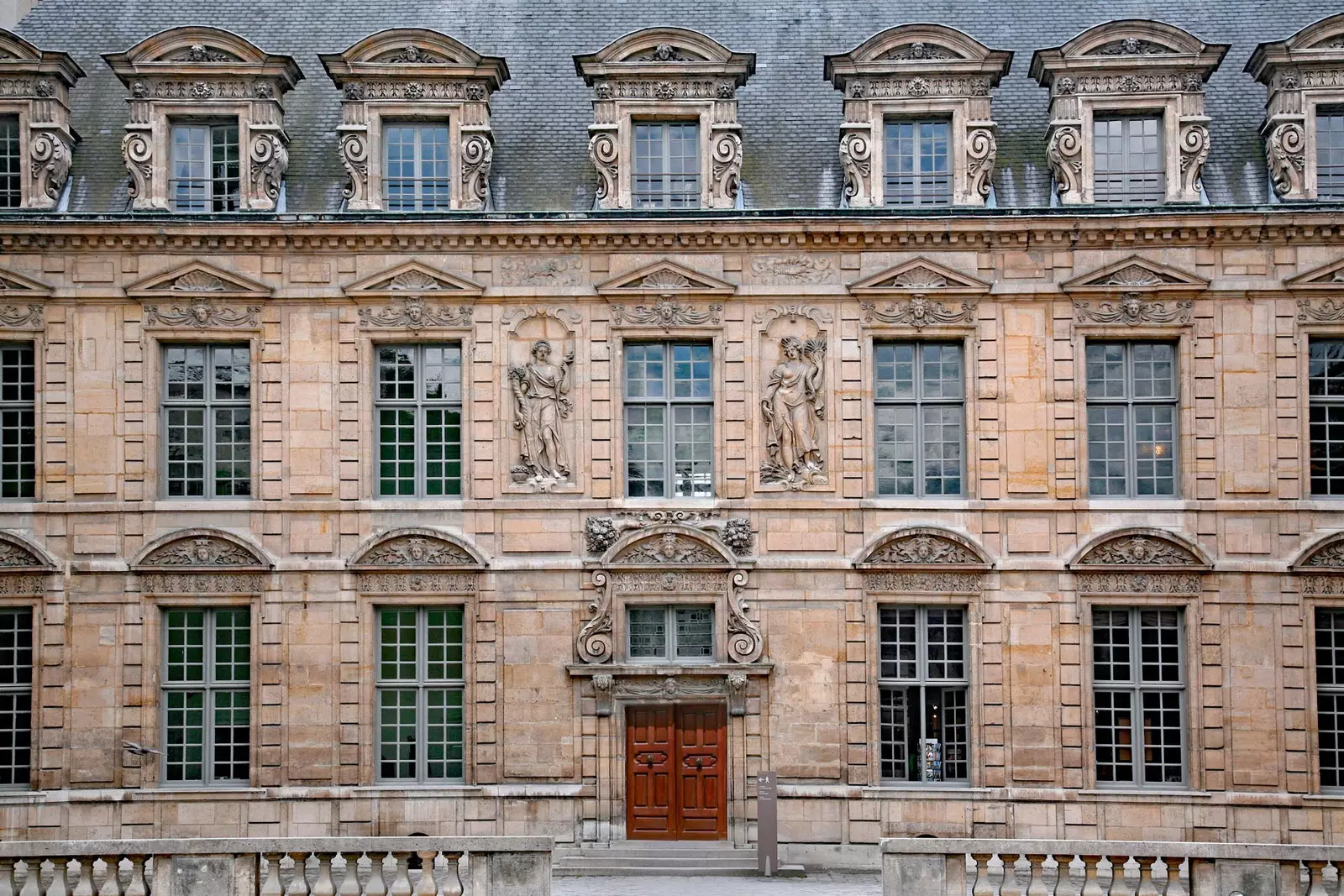
L'Hôtel de Sully, in the Marais
HÔTEL DE CRILLON _(10 Place de la Concorde, 75008) _
In 1758, the King of France Louis XV orders his architect Jacques-Ange Gabriel , the realization in the place de la Concorde, of two identical facades on both sides of the rue Royale. The land located behind the western colonnade is divided into 4 parts ceded to individuals so that they could build private hotels behind the façade.
The hotel de Crillon, originally called hôtel d'Aumont , was built in 1765 by the architect Louis Francois Trouard and the interior decoration was imagined by Pierre-Adrien Paris. It changed its name when years later it passed into the hands of François Félix de Crillon.
On its façade, considered a historic monument; the columns of its portico support a cornice crowned with a pediment that represents the allegory of agriculture and on the sides stand out niches destined to place statues, medallions or trophies.
In 1909 it becomes the first great Parisian prestige hotel , one of the oldest and most luxurious in the world. After extensive renovations, its decorations are distributed in other mansions and even in the Metropolitan Museum of Art in New York, but its luxurious comfort and prime location attracts the crème de la crème of royalty and heads of state.
As of 2010 the hotel becomes the property of a member of the Saudi royal family, not without criticism. Today, this palace offers a swimming pool, a spa and 43 suites, the best known being the Bernstein suite and the Louis XV overlooking the impressive square.
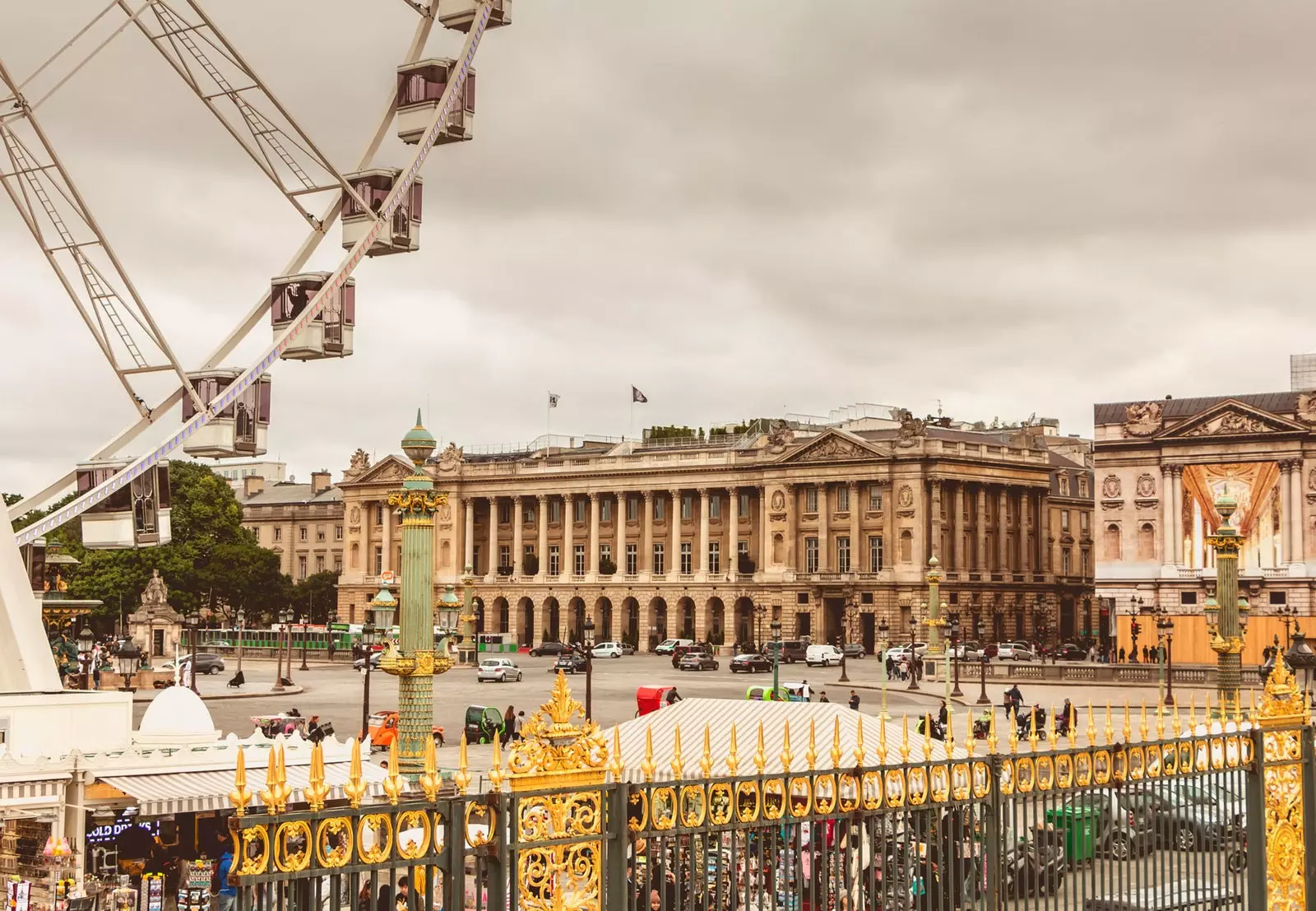
L'Hôtel de Crillon, the refuge of the crème de la crème
HOTEL DE SOUBISE _(60 rue des Francs-Bourgeois, 75004) _
This 18th-century hôtel particulier is one of the most prestigious in the city. Its classic-style façade is impressive, guarding an elegant courtyard of honor in the hemicycle surrounded by a colonnade that was accessed through a huge crescent-shaped gate that allowed the entrance of carriages.
The preserved halls house the ** National Archives of the history of France.** In addition to discovering the documents of its museum, walkers can enjoy its garden patio with poetic flower beds.
It also organizes exhibitions, guided tours, concerts and events on special dates such as the European Night of the Museums, the Nuit Blanche or the Music Festival. We look forward to mid-2021 to see the result of the enormous reform.
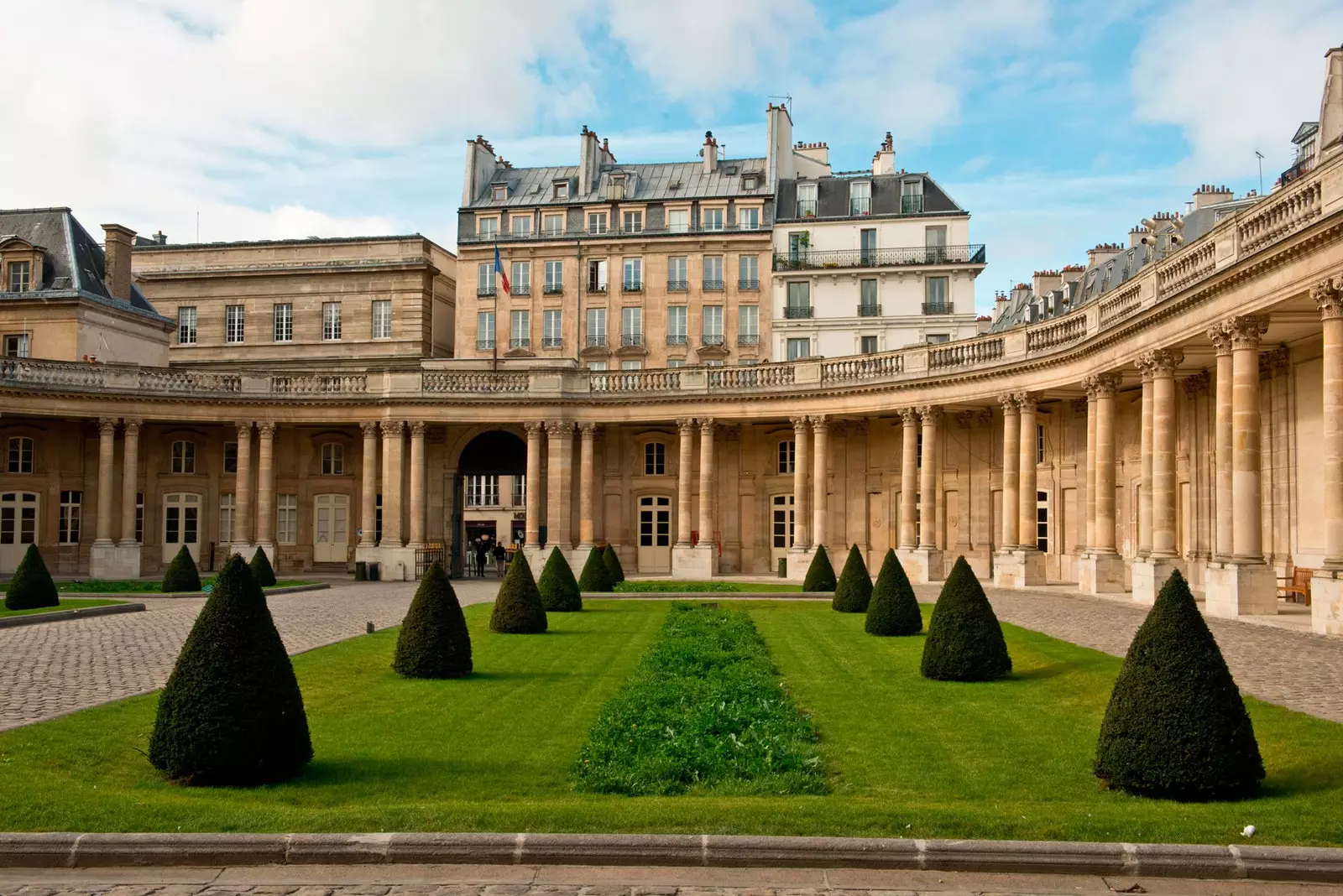
The halls of the Hôtel de Soubise house the National Archives
